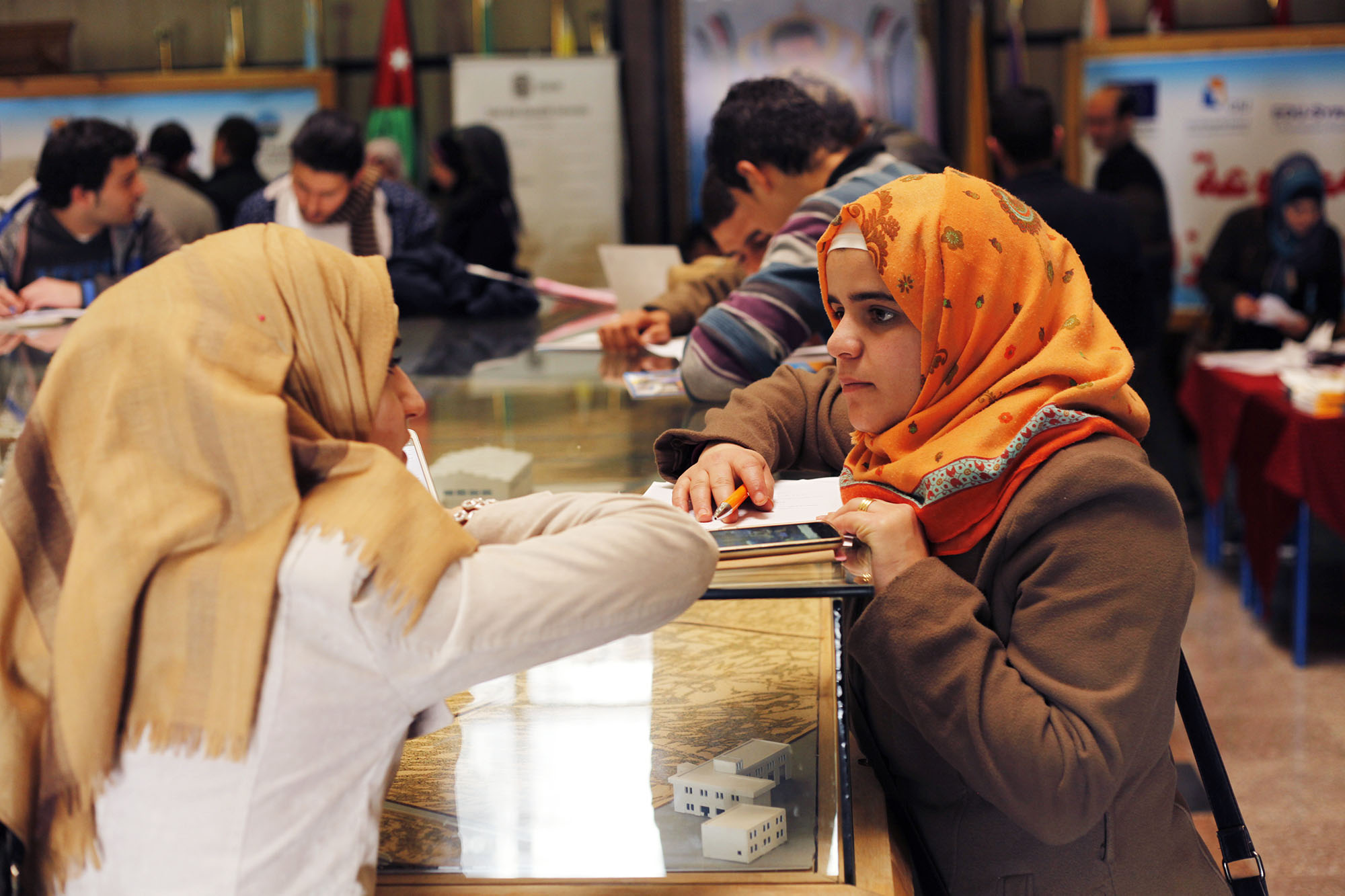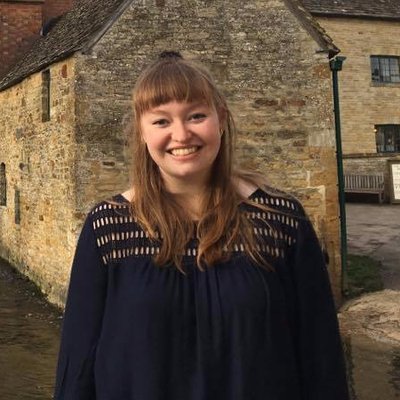
Syrian refugee students attend an open house at Zarqa University in Jordan to apply for EU scholarships that would enable them to study at a number of colleges
I started closely following the crisis in Syria in the fall of 2015, when I was studying abroad in Paris. Suddenly, news reports about refugees forced to sleep in the city’s train stations became visceral because I had walked those same floors. However, as I kept up with the news it became clear that the international press could only tell part of the story. Since it was incredibly dangerous for Western reporters to be on the ground, there wasn’t much local reporting available in English, and stories which humanized the Syrian people took a backseat to descriptions of battle lines or the latest controversy with a host community.
In my final semester at Northeastern University, I created an online citizen journalism class for the nonprofit Paper Airplanes that would give 10 young adults affected by the violence in Syria the tools to share their singular stories and perspectives with the world. Paper Airplanes was founded by a U.S. college student in 2014 to provide free, online, one-on-one English tutoring to Syrians affected by the conflict and quickly expanded to offer additional language and skills programs, including the journalism class. I taught the pilot course in the fall of 2017 with two co-instructors, Hussein Akoush and Lindsay Rand. As we worked with our students, we developed an even greater appreciation for the power of citizen journalism.
The course met twice a week over Google Hangouts for 12 weeks. Our students were five women and five men, all Syrian but living in very different situations across the globe: France, Syria, Jordan, Malaysia and Saudi Arabia. This brought a priceless diversity of ideas but meant our students faced many different challenges when reporting. Some students were worried no one would speak with them if they identified themselves as a journalist. One woman was concerned about being able to speak to strangers in public at all, as women where she lived would normally have male supervision. Additionally, all of our students were non-native English speakers, and it wasn’t guaranteed that their sources would be able to speak English.
Rather than force students to follow unachievable rules, we modified article requirements with student input. The goal of the course was to serve the students, and that’s what we did. It wasn’t an issue if the students couldn’t get three to five sources for each story. We still wanted them to attempt a mix of story types, but we understood if they couldn’t find an event to cover. Most importantly, we assigned everyone a peer mentor to make sure the students felt supported. These mentors helped students prepare interview questions, use basic elements of journalism style, and organize their stories.
The course would not have succeeded without Hussein’s perspective. Originally from Syria himself and also a former Paper Airplanes English student, he is now a journalist based in Turkey. His personal understanding of what many of our students had gone through, as well as his knowledge of the problems facing journalists in the Middle East, were essential. During our class meetings, he provided critical insight and translated for students whenever unfamiliar jargon or concepts were too difficult to understand.
We were impressed by the stories our students produced. They had come a long way from the beginning of the course when no one knew what a lede was, much less how to write one. The articles included a profile of a young Syrian artist, a look at problems getting aid to civilians in areas where fighting had stopped, and a feature about the lack of cancer care in Eastern Ghouta which student Firas Abdullah successfully pitched to Global Voices. It was clear that our students simply needed a nudge in the right direction to write nuanced, vital stories that would help the outside world understand their varied situations.
Even better, the course had a longer-term impact: The students felt confident enough to keep reporting after the class. Two of the women are now writing an op-ed with advice for Western journalists covering refugee issues, and Firas has been documenting the violence in eastern Ghouta and giving essential interviews to international outlets. We are working with our partner Global Student Square, a youth-led international student journalism network founded by Knight journalism fellow Beatrice Motamedi, to publish more student stories and pitch to media partners.
There is a huge demand for classes like this—nearly 300 people applied for our class in a 24-hour period. Millions of Syrians and other displaced peoples who have had their lives interrupted by war want—and deserve—to continue their educations and tell their stories. We hope that when we run the class with new students this summer, their stories will get even more exposure so people around the world see the power of citizen journalism. We’re also hoping to incorporate more guest speakers so our students can be exposed to all of the possibilities journalism opens for them (we were lucky enough to have investigative reporter Azmat Khan, CNN international correspondent Clarissa Ward, and Fox News correspondent Hollie McKay as guest speakers this fall).
In a feedback survey, one of our students wrote, “This industry can change the life of many people for the better or the worse, the more reason it should be done very very carefully.”
More than ever before, it’s clear that when people know how to responsibly question, investigate, and share what’s happening in their communities, they can provide unique perspectives and report critical stories that most outsiders don’t have the resources or connections to share (especially in times of crisis). We’re looking forward to helping more citizen journalists get the tools they need to report their own stories so that the communities at the center of today’s biggest news stories can make their voices heard.


